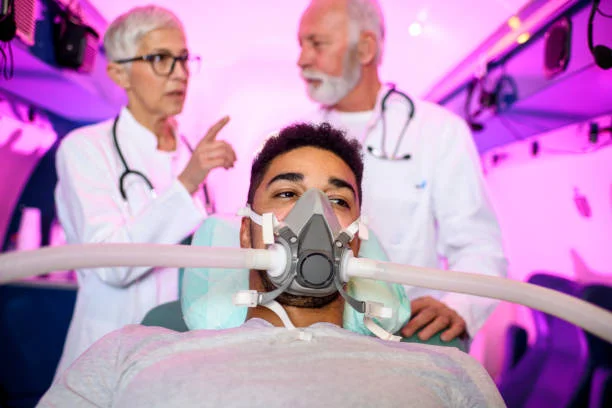The Expanding Role of Respiratory Care
Respiratory care has evolved beyond traditional hospital settings, with professionals now playing a vital role in managing chronic conditions, supporting emergency care, and contributing to preventive health efforts. As respiratory illnesses such as asthma, COPD, and post-viral complications rise, the demand for skilled respiratory therapists has grown across outpatient clinics, rehabilitation centers, and home healthcare environments. Advances in diagnostic technology and patient monitoring have also expanded the scope of responsibilities for respiratory care professionals, making their expertise more essential than ever.
To meet this rising demand, educational institutions are adapting by offering flexible pathways into the profession. Programs like Northern Kentucky University prepare students to address complex respiratory health needs with technical and compassionate care. For those balancing work or family commitments, enrolling in a respiratory therapist school online can provide the necessary education and training without sacrificing convenience. These programs help shape professionals ready to thrive in today’s evolving healthcare landscape. With a strong emphasis on clinical competence, critical thinking, and patient communication, they equip graduates to make immediate, meaningful contributions. As the healthcare system prioritizes respiratory wellness, trained therapists will remain central to acute care and long-term patient support.
There’s so much more to discover—browse our related posts!
Core Clinical Skills Every Respiratory Care Professional Needs
Technical excellence is the backbone of effective respiratory care. Professionals in the field must have highly developed clinical skills to treat a broad spectrum of patients, from premature infants with underdeveloped lungs to seniors coping with advanced respiratory diseases. Key tasks include conducting patient assessments, setting up and monitoring mechanical ventilators, providing life-saving interventions during emergencies, performing chest physiotherapy, administering inhaled medications, and interpreting blood gas analyses. Mastering these skills ensures that respiratory therapists can respond rapidly and accurately to changes in patient conditions, which often means the difference between stabilization and escalation.
- Ventilator Management: Understanding the nuances of different ventilator modes and troubleshooting alarms is vital in critical and acute settings.
- Blood Gas Analysis: The ability to quickly interpret ABG results helps drive immediate changes to therapy, especially during respiratory failure.
- Airway Clearance Techniques: Therapists use techniques, devices, and manual maneuvers to keep airways patent and prevent complications from secretion buildup.
- Emergency Response: Knowing how to recognize deterioration and initiate urgent interventions is essential in respiratory distress scenarios.
Clinical proficiency also relates to infection prevention, equipment sterilization, and safe handling of hazardous materials—skills that have become even more critical since the COVID-19 pandemic. Skilled respiratory therapists leverage evidence-based practices to minimize the risk of hospital-acquired infections, protect themselves, and improve patient outcomes.
Communication: Bridging the Gap Between Patients and Providers
Clear and compassionate communication is as essential as technical expertise for respiratory therapists, who often educate patients and families on complex devices, medications, and lifestyle changes. Simplifying medical jargon helps patients understand their diagnoses and treatment plans, promoting adherence and empowerment in their care.
Effective communication is also crucial in multidisciplinary teams. Respiratory professionals collaborate daily with physicians, nurses, and other therapists. Sharing clinical updates and listening to diverse perspectives fosters trust and collaboration, leading to fewer errors and higher patient satisfaction.
Embracing Technology in Modern Practice
Medical technology has transformed respiratory care with new diagnostics, therapies, and delivery methods. Therapists utilize electronic health records (EHR) for accurate data entry and coordination and advanced diagnostic tools like pulmonary function systems and high-flow oxygen devices. The rise of telehealth and remote monitoring has enabled support for patients at home, a trend that accelerated during the COVID-19 pandemic. Staying updated on industry innovations enhances clinical effectiveness and fosters workflow improvements. Adaptability to evolving technology distinguishes leading therapists in hospital ICUs and outpatient clinics.
Key Technological Skills
- Programming and troubleshooting complex ventilators and oxygen delivery systems
- Utilizing remote health monitoring devices for post-discharge care and chronic management
- Applying digital documentation standards for data integrity and compliance
Interdisciplinary Teamwork: Collaborating for Better Outcomes
Modern healthcare relies on teamwork, and respiratory therapists play a vital role in collaborative care. They coordinate with professionals across hospital units and rehabilitation centers to ensure quality patient care. Respiratory therapists contribute to weaning protocols, family consultations, and shared decision-making in joint rounds and care planning meetings.
Successful collaboration hinges on active listening, flexibility, and mutual respect for specialized knowledge. Respiratory care practitioners often facilitate communication among team members during rapid responses or code situations.
Discover fresh content every day—visit 2A Magazine.







